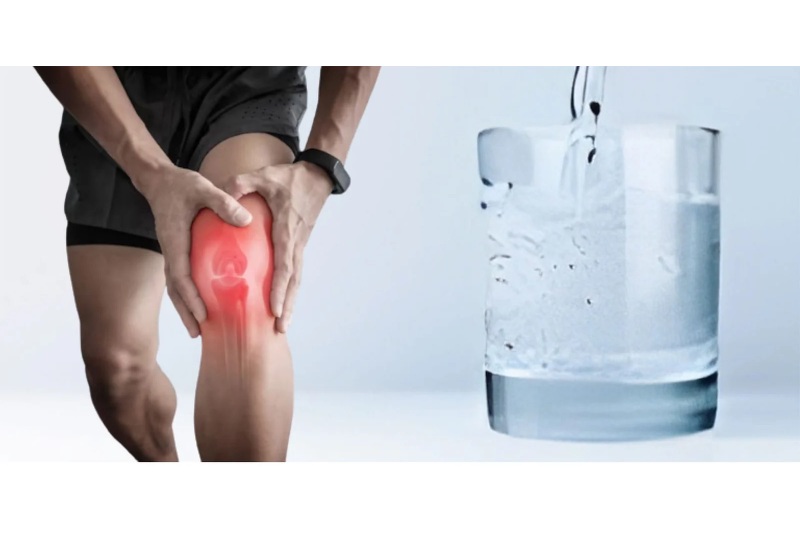The Reasons And Solutions For How Dehydration Can Boost Joint Pain

Joint pain and dehydration are closely associated since water is necessary to maintain the health and function of joints. Your joints are surrounded by synovial fluid, which lubricates them to reduce friction and promote painless movement. Dehydration causes the body to create less synovial fluid, which increases joint wear and friction and can result in pain and stiffness. The fact that dehydration can reduce cartilage’s ability to absorb shock can exacerbate joint pain.
Adequate hydration is necessary to reduce discomfort and maintain optimal joint health.
Here are some explanations for why dehydration exacerbates joint pain along with useful advice for controlling and avoiding it:
Reasons Why Joint Pain Is Increasing With Dehydration
Diminished Synovial Fluid: Water makes up the majority of synovial fluid, which lubricates and cushions joints. Dehydration decreases this fluid’s production, which increases friction between cartilage surfaces and results in reduced lubrication—a process that can cause discomfort and stiffness.
Inflammation and Toxin Buildup: Drinking enough water aids in the body’s removal of waste materials and toxins that can aggravate inflammation. Dehydration impairs the body’s capacity to eliminate these compounds, which may exacerbate joint pain and inflammation, particularly in instances of rheumatoid arthritis.
Cartilage Health: To preserve its form and functionality, cartilage, which is the tissue that covers the ends of the bones in a joint, has to be properly hydrated. Dehydration can exacerbate osteoarthritis, cause joint discomfort, and cause cartilage to become more brittle and less resilient.
Muscle Soreness and Cramping: Dehydration can lead to stiffness and cramping in the muscles, which can aggravate joint pain. More strain is placed on joints by tense, cramping muscles, which results in discomfort and decreased movement.
Handling Joint Pain Associated with Dehydration
Boost Fluid Intake: Increasing your fluid intake is the easiest strategy to fight dehydration. Try to drink eight 8-ounce glasses of water a day, or more if you live in a hot area or are physically active. Water-rich fruits and vegetables, as well as herbal teas, contribute to proper hydration.
Track Your Hydration Levels: Keep an eye out for symptoms of dehydration, such as lethargy, dark urine, and dry mouth. Remind yourself to drink water on a regular basis by using hydration diaries or apps.
Electrolyte Balance: Electrolytes—such as magnesium, potassium, and sodium—are necessary to keep joints healthy and fluid levels stable. Eat or drink foods or beverages high in electrolytes, especially during or after vigorous exercise or in hot weather.
Nutritional Points to Remember: Consume foods high in water, such as melons, oranges, strawberries, and cucumbers. Flaxseeds and salmon are two foods high in omega-3 fatty acids that can promote joint health and reduce inflammation.
Frequent Check-Ups: Especially for people with chronic joint disorders, routine medical visits are essential. Medical professionals can provide tailored guidance on joint care and hydration.
Adjust Environment: To lower the risk of dehydration in hot weather, stay in cool, shady, or air-conditioned areas. When engaging in physical exercise, dress comfortably and take breaks to relax and hydrate.
Exercise Sensibly: Physical activity is essential for maintaining healthy joints. Opt for low-impact exercises like yoga or swimming, as these are less likely to worsen joint pain and dehydration.